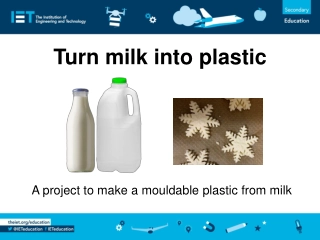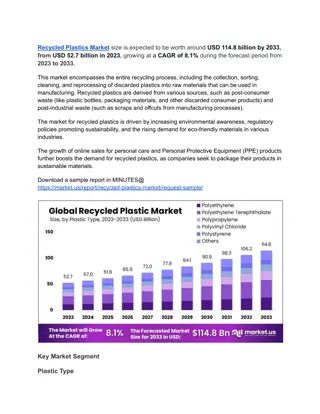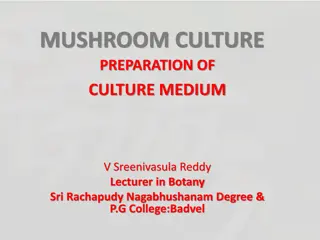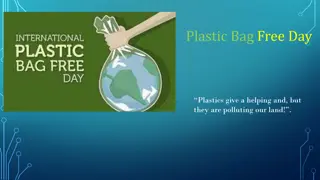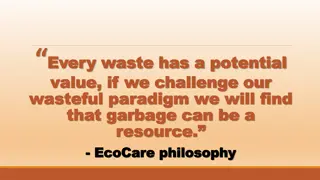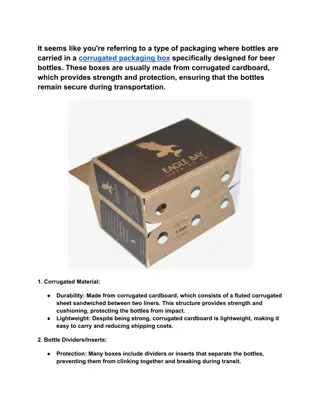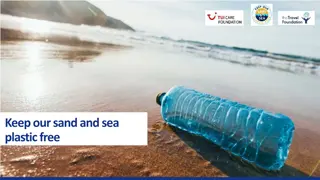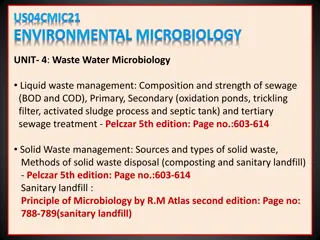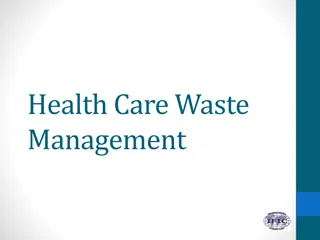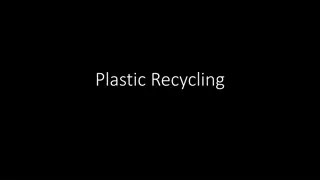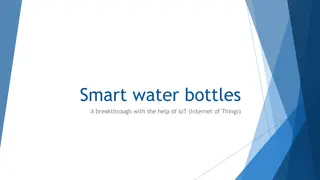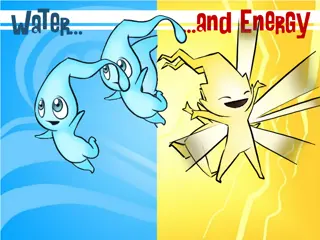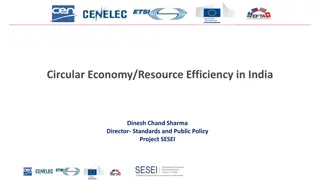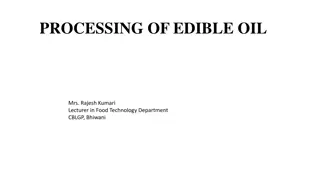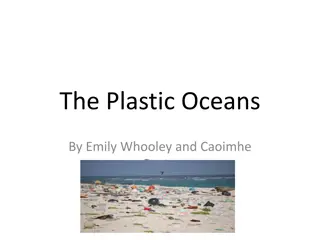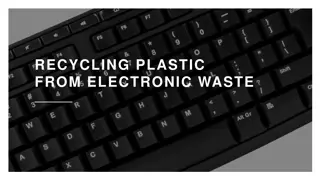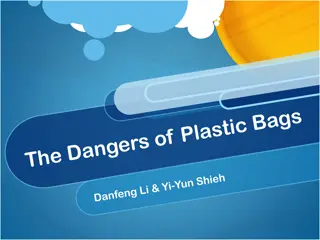DIY: Make Edible Water Bottles to Reduce Plastic Waste
Learn how to create edible water bottles using sodium alginate and calcium lactate, helping to reduce plastic waste from traditional water bottles. Discover the environmental impact of plastic bottles and why sustainable alternatives are crucial. Take a step towards a greener future by following these simple steps and enjoy your homemade edible water containers.
Download Presentation

Please find below an Image/Link to download the presentation.
The content on the website is provided AS IS for your information and personal use only. It may not be sold, licensed, or shared on other websites without obtaining consent from the author. Download presentation by click this link. If you encounter any issues during the download, it is possible that the publisher has removed the file from their server.
E N D
Presentation Transcript
DIY: Edible Water Bottles AND WHY WE NEED THEM
Did You Know? Making water bottles for America alone uses more than 17 million barrels of oil annually, enough to fuel 1.3 million cars for a year Last year in America, only 1.8% of water bottles used were recycled One water filter pitcher can replace up to 300 standard water bottles Plastic water bottles take over 1,000 years to bio-degrade and if incinerated, they produce toxic fumes 90% of the cost of bottled water is just the bottle 38 million water bottles go to the dump per year in America http://greenupgrader.com/3258/plastic-bottle-facts-make-you-think-before-you-drink/ http://www.banthebottle.net/bottled-water-facts/ http://thewaterproject.org/bottled_water_wasteful
What Youll Need 1g of sodium alginate Both easily found online 5g of calcium lactate 3 bowls 1 with 4 cups of water 1 with 1 cup of drinking water 1 with 1 cup of water A hand mixer A curved spoon (small measuring spoon works best) A slotted spoon
Steps Add the sodium alginate to your bowl of drinking water and mix with the hand mixer. Set it aside for 15 minutes to make sure there are no air bubbles. Add the calcium lactate to the 4 cups of water. Stir well. With the curved spoon, scoop up some of the sodium alginate solution and add it to the calcium lactate solution. Stir gently for 3 minutes. Carefully remove the water bubbles from the calcium lactate solution with the slotted spoon. Rinse them in the final bowl of water and enjoy
Video Example http://www.youtube.com/watch?v=YLjzsfgk198
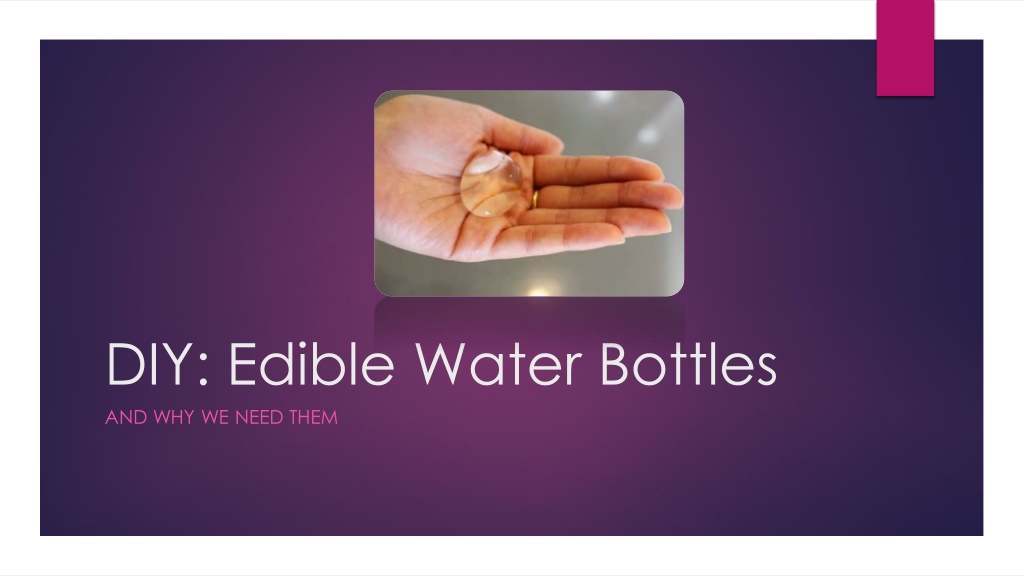
 undefined
undefined






